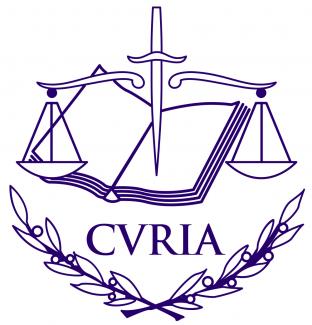A hotel using the platform Booking.com may, in principle, bring proceedings against Booking.com before a court of the Member State in which that hotel is established in order to bring to an end a possible abuse of a dominant position
Even though the practices which are thus the subject of complaint are implemented within the context of a contractual relationship, the rule of special jurisdiction in matters relating to tort, delict or quasi-delict laid down in the Brussels Ia Regulation is applicable to them.
Wikingerhof GmbH & Co. KG, a company governed by German law operating a hotel in Germany, concluded, in 2009, a contract with Booking.com BV, a company governed by Netherlands law which has its seat in the Netherlands and operates an accommodation booking platform. That contract was a standard form contract provided by Booking.com which stated, inter alia, the following: ‘The hotel declares that it has received a copy of Version 0208 of the General Terms and Conditions … of Booking.com. These are available online at Booking.com …. The hotel confirms that it has read and understood the terms and conditions and agrees to them. The terms and conditions form an integral part of this contract …’. Subsequently, and on several occasions, Booking.com amended its general terms and conditions, accessible on that company’s Extranet.
Wikingerhof objected in writing to the inclusion in the contract at issue of a new version of the general terms and conditions that Booking.com had brought to the attention of its contracting partners on 25 June 2015. Wikingerhof claimed that it had had no choice but to conclude that contract and to suffer the effect of subsequent amendments to Booking.com’s general terms and conditions by reason of the latter’s strong position on the market for intermediary services and accommodation reservation portals, even though certain practices of Booking.com are unfair and therefore contrary to competition law.
Wikingerhof subsequently brought an action before the Landgericht Kiel (Regional Court, Kiel, Germany) seeking an injunction prohibiting Booking.com (i) from affixing to the price specified by Wikingerhof, without the latter’s consent, the indication ‘preferential price’ or ‘discounted price’ on the accommodation reservation platform, (ii) from withholding the contact information provided by its contracting partners on that platform, and (iii) from making the placement of the hotel which it operates in search requests dependent on the granting of commission in excess of 15%. The Landgericht Kiel concluded that it lacked territorial and international jurisdiction, a finding which was confirmed on appeal by the Oberlandesgericht Schleswig (Higher Regional Court, Schleswig, Germany). According to that latter court, apart from the fact that German courts had no general jurisdiction under Regulation No 1215/2012 1 (the Brussels Ia Regulation) because Booking.com has its seat in the Netherlands, neither the special jurisdiction of the court for the place of performance of the contractual obligation, under point 1(a) of Article 7 of Regulation No 1215/2012, nor that of the court for the place where the harmful event occurred in matters relating to tort, delict or quasi-delict, under point 2 of Article 7 of that regulation, was established in the present case.
In the appeal on a point of law (Revision) brought by Wikingerhof, claiming that the Oberlandesgericht Schleswig had erred in finding that the action in question did not come within its jurisdiction in matters relating to tort, delict or quasi-delict, the Bundesgerichtshof (Federal Court of Justice, Germany) in turn referred a question to the Court of Justice for a preliminary ruling.
The Court is thus asked whether point 2 of Article 7 of Regulation No 1215/2012 applies to an action seeking an injunction to stop certain practices implemented in the context of the contractual relationship between the applicant and the defendant, based on an allegation of abuse of a dominant position by the latter in breach of competition law.
Findings of the Court
In answer to that question, the Court notes that the applicability of either point 1(a) of Article 7 of Regulation No 1215/2012 or point 2 of Article 7 thereof depends, inter alia, on the examination, by the court hearing the action, of the specific conditions laid down by those provisions. Thus, where an applicant relies on one of those rules, it is necessary for the court hearing the action to establish whether the applicant’s claims concern, irrespective of their classification under national law, matters relating to a contract or, on the contrary, matters relating to tort, delict or quasi-delict within the meaning of that regulation. In particular, in order to decide whether a claim between contracting parties is connected to ‘matters relating to a contract’ or to ‘matters relating to tort or delict’, within the meaning of Regulation No 1215/2012, the court hearing the action must examine the obligation ‘relating to a contract’ or ‘relating to tort, delict or quasi-delict’ which constitutes the cause of action.
Thus, an action concerns matters relating to a contract, within the meaning of point 1(a) of Article 7 of Regulation No 1215/2012, if the interpretation of the contract between the defendant and the applicant appears indispensable to establish the lawful or, on the contrary, unlawful nature of the conduct complained of against the former by the latter. By contrast, where the applicant relies, in its application, on rules of liability in tort, delict or quasi-delict, namely breach of an obligation imposed by law, and where it does not appear indispensable to examine the content of the contract concluded with the defendant in order to assess whether the conduct of which the latter is accused is lawful or unlawful, the cause of the action is a matter relating to tort, delict or quasi-delict within the meaning of point 2 of Article 7 of Regulation No 1215/2012.
In the present case, Wikingerhof relies, in its application, on an infringement of German competition law, which lays down a general prohibition of abuse of a dominant position, independently of any contract or other voluntary commitment. Thus, the legal issue at the heart of the case in the main proceedings is whether Booking.com committed an abuse of a dominant position within the meaning of German competition law. In order to determine whether the practices complained of against Booking.com are lawful or unlawful in the light of that law, it is not indispensable to interpret the contract between the parties to the main proceedings, such interpretation being necessary, at most, in order to establish that those practices actually occur.
The Court concludes that, subject to verification by the referring court, the action brought by Wikingerhof, in so far as it is based on the legal obligation to refrain from any abuse of a dominant position, is a matter relating to tort, delict or quasi-delict within the meaning of point 2 of Article 7 of Regulation No 1215/2012.
1 Regulation (EU) No 1215/2012 of the European Parliament and of the Council of 12 December 2012 on jurisdiction and the recognition and enforcement of judgments in civil and commercial matters (OJ 2012 L 351, p. 1).








